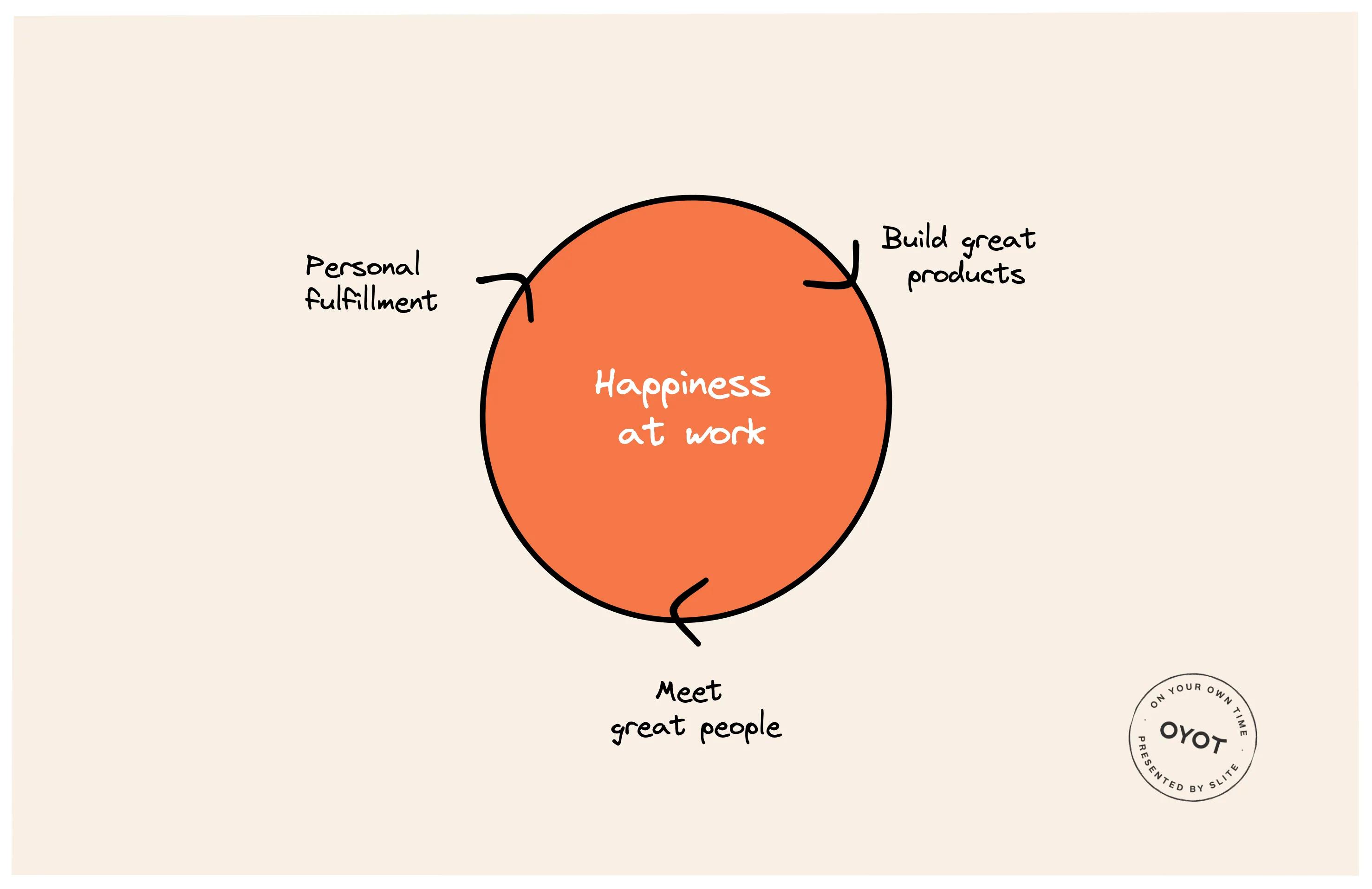Is remote actually enjoyable?
If it's not clear enough already, remote work is here to stay. Since COVID began, only 40% of companies have returned to the office full-time. To sum it up from a 10,000 foot view: remote provides more freedom, flexibility, and balance for the worker; and more talent, agility, and budget for the leader. We know this, we write a blog about it.
But here's an uncomfortable question: if remote becomes a table-stakes benefit, like dental insurance, a new laptop, and a couple weeks of vacation, then what advantage is it really offering us? Will remote actually make us better at our jobs and happier at work?
Work can be drudgery, or just a way to pay the bills, but it can also be a path to meaning and fulfilment. It's not necessarily about following your passion, or living life in vacation mode, but about showing up for yourself and others, about building things you are proud of and accomplishing things you didn't think possible. Anyone who's ever quit their job or been laid off knows the empty feeling that follows, the isolation of no longer being part of a culture, of suddenly not having large goals to chip away at, or a team of people to support you along the way.
In order to be more than a passing trend, remote needs to tip the scales towards deeper personal fulfilment and away from the benefits arms race. In order to actually improve our lives, remote work needs to justify itself as a driver of high-quality products and high-quality relationships, not just as a perk or convenience.
In order to build high quality products, we need to be happy and secure in our jobs, and in order to be happy and secure in our jobs, we need to do high quality work. It's a virtuous cycle.

The uncomfortable answer to the uncomfortable question is this: remote only makes us happier if we are able to reach our full professional potential. Work is only enjoyable when you're good at it, no matter how or where you choose to do it.
We don't think remote work is a trend, but if you do - then consider why you're inclined to follow. Is it because other companies are doing it? Is it because new hires expect it?
These are not the reasons to switch to remote work. The only compelling reason to switch to remote, from a business and personal perspective, is because the work will be better.
Remote work must:
1) contribute to revenue - it positively impacts your bottom line
2) contribute to employee retention - it positively impacts your culture and longevity of careers at your company
3) contribute to happiness - it helps people find meaning and belonging.
Ideally it does all three. And if it fulfills none of the above, then it may not be for you.

Written by Melanie Broder
Melanie Broder is on the Marketing team at Slite, where she works on all things content. She helps Slite users gain new skills through guides, templates, and videos. She lives in New York City, where she likes to read novels and run loops around Central Park.


